Shape Recognition Easy Math Worksheets for Ages 4-7
16 filtered results
-
From - To
Unlock your child's potential with our Shape Recognition Easy Math Worksheets, designed especially for ages 4-7. These engaging worksheets make identifying and understanding shapes fun and interactive, fostering early math skills and cognitive development. Each worksheet is crafted to enhance pattern recognition, spatial awareness, and critical thinking in young learners. Our educational activities are perfect for both classroom and home use, making learning an enjoyable adventure. Download now and watch your child confidently explore the world of shapes while building a strong mathematical foundation. Start your math journey today with Kids Academy!
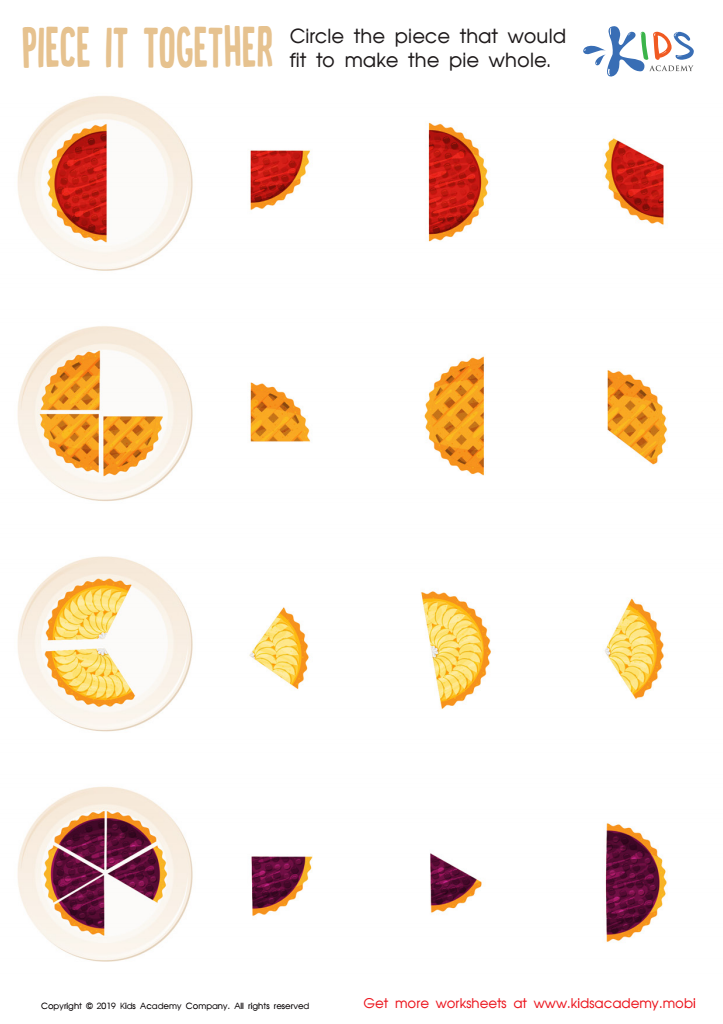

Piece it together Worksheet
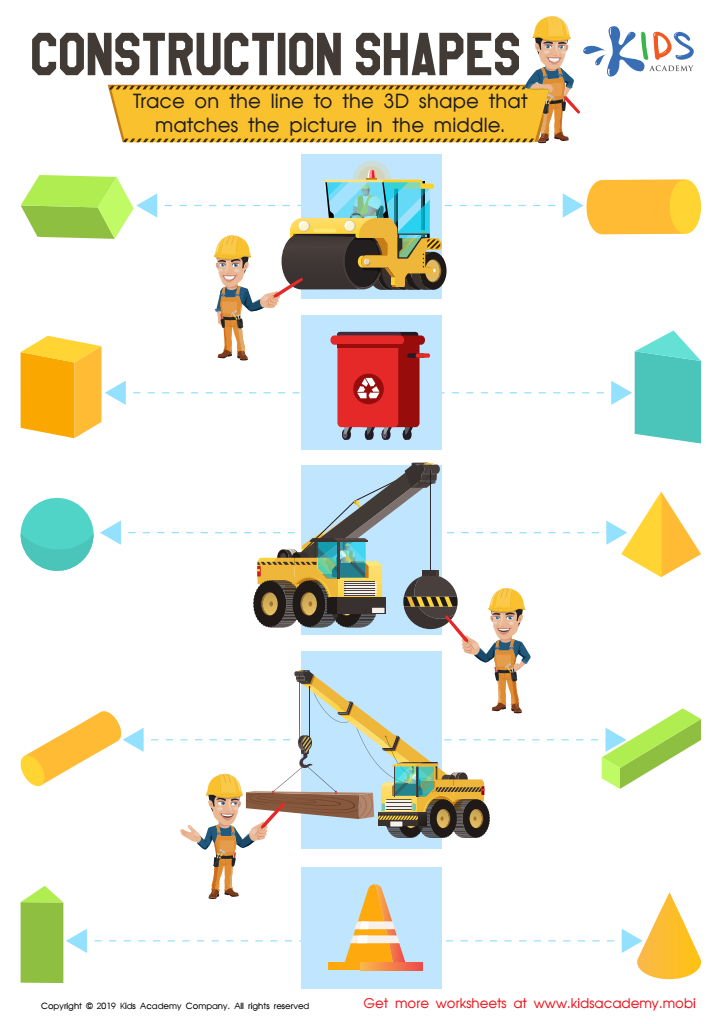

Construction Shapes Worksheet
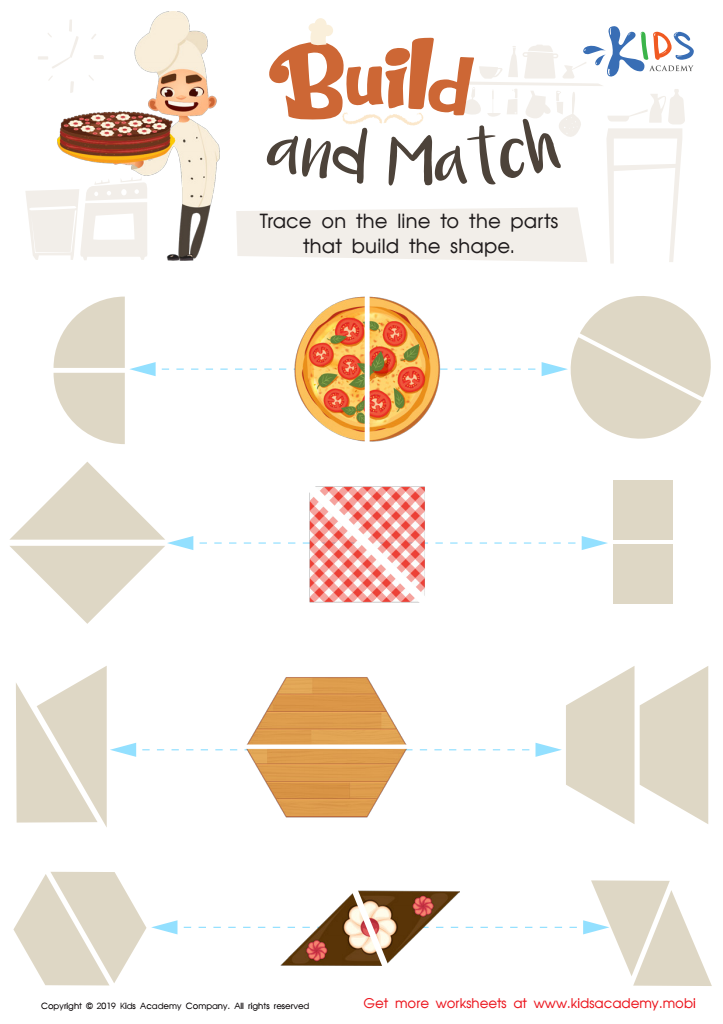

Build and Match Worksheet
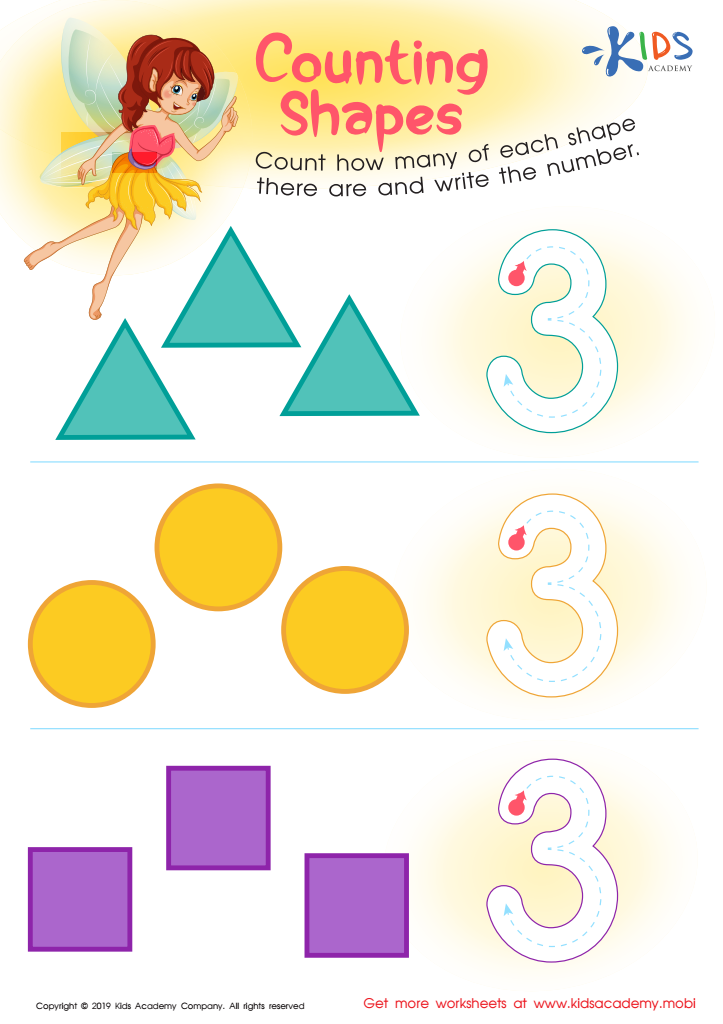

Counting Shapes Worksheet
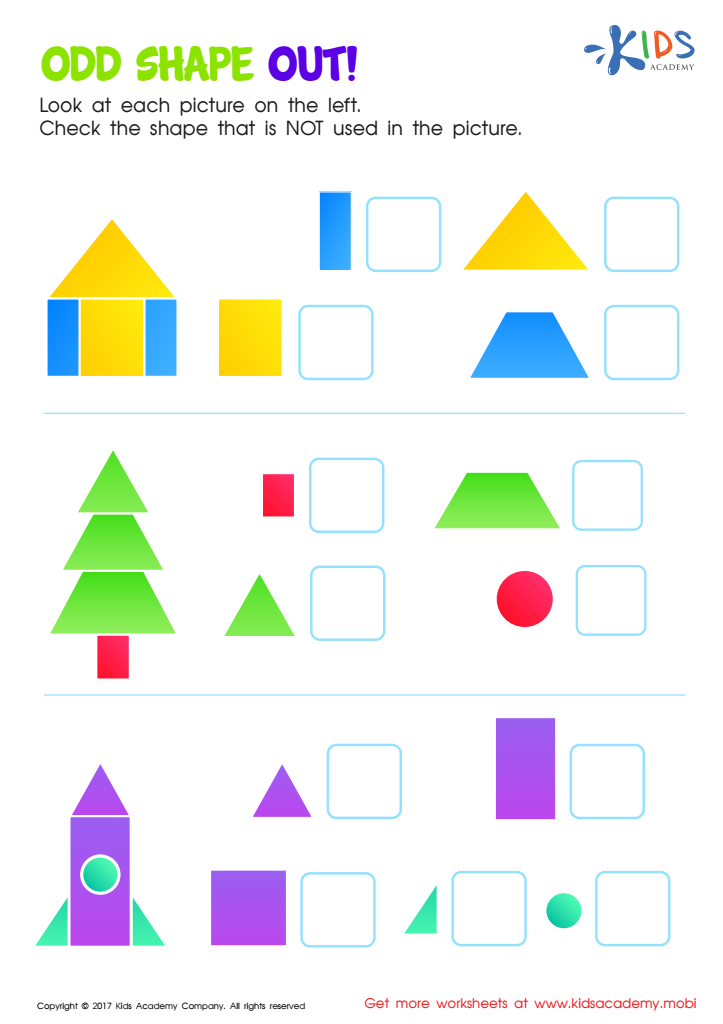

Odd Shape Out Worksheet for Grade 1
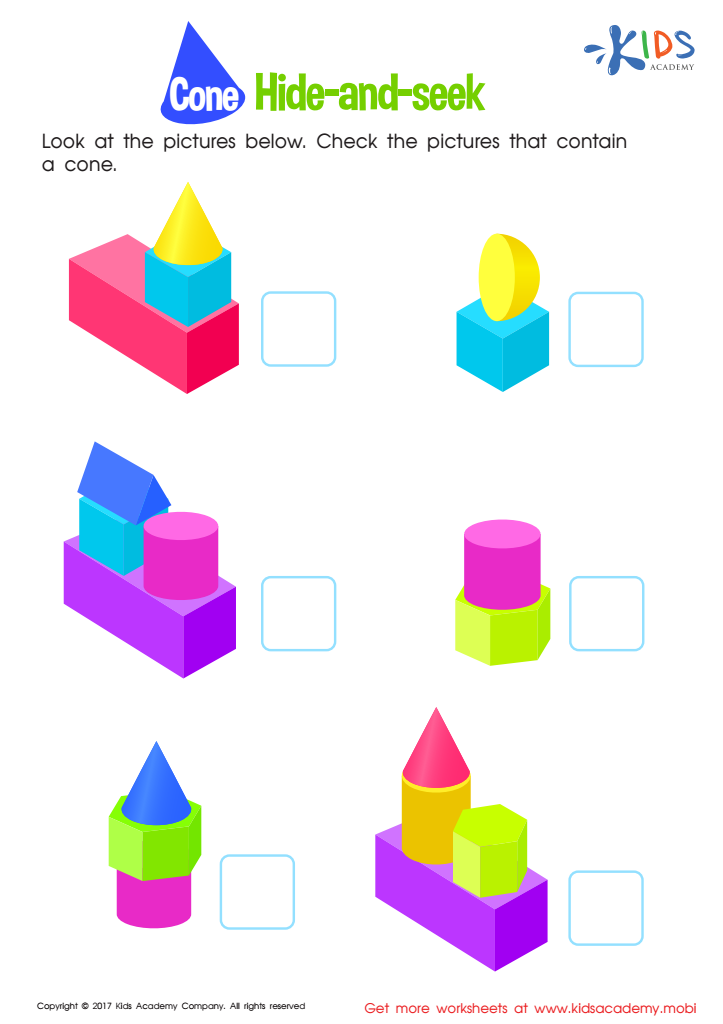

Cone Hide-and-Seek Worksheet
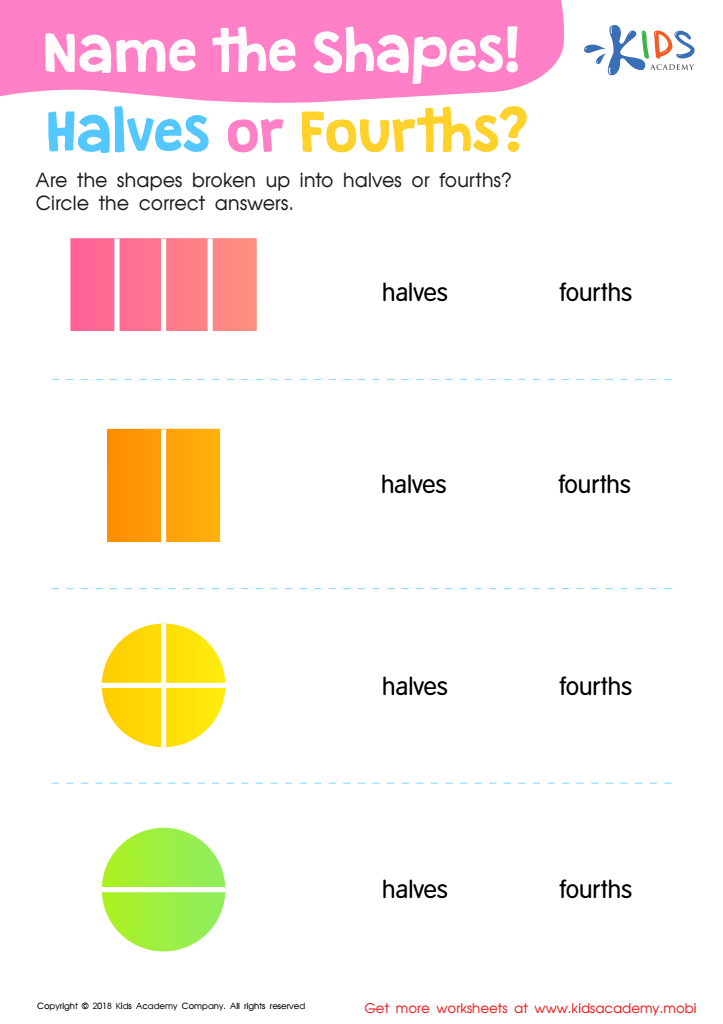

Name the Shapes Halves or Fourths? Worksheet
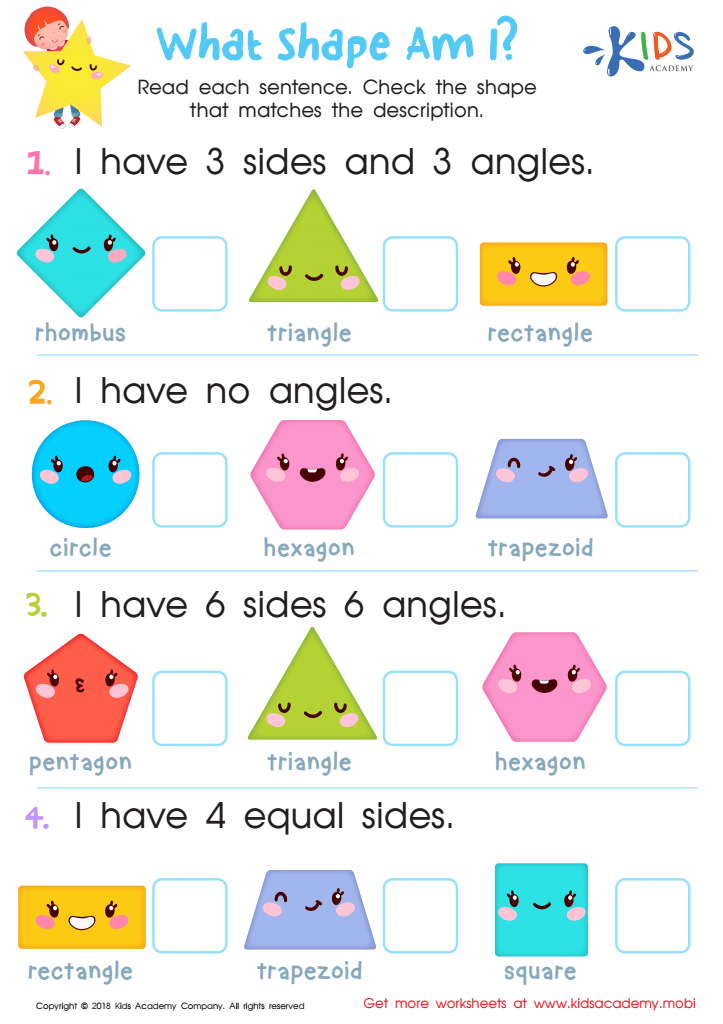

What Shape Am I? Worksheet


Faces of 3D Shapes Worksheet
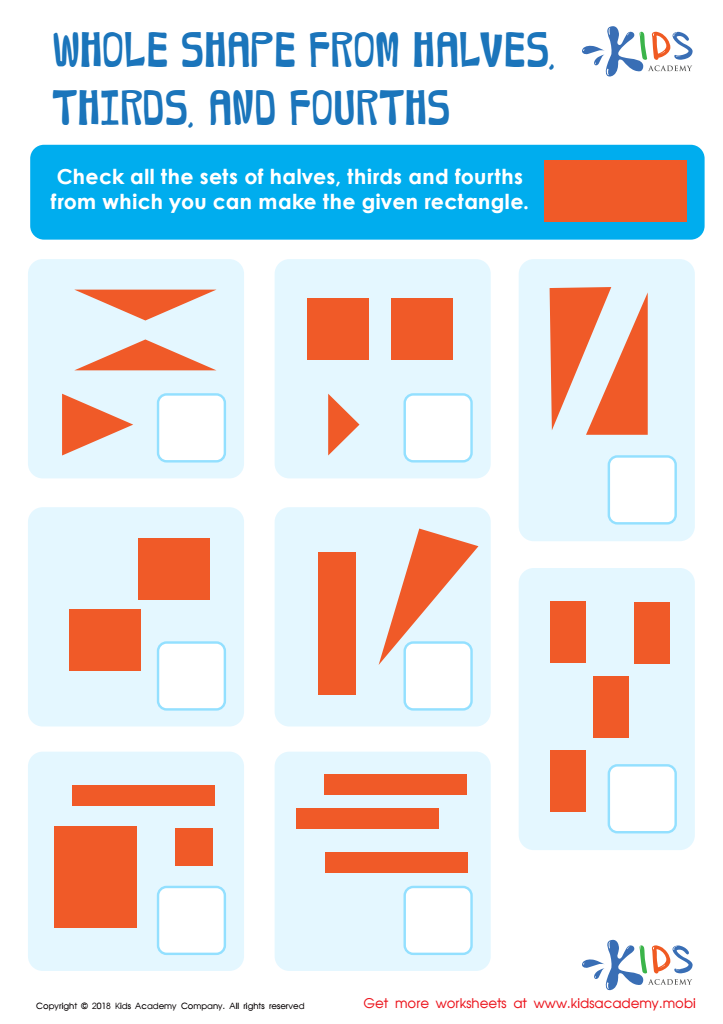

Whole Shape from Halves, Thirds and Fourths Worksheet
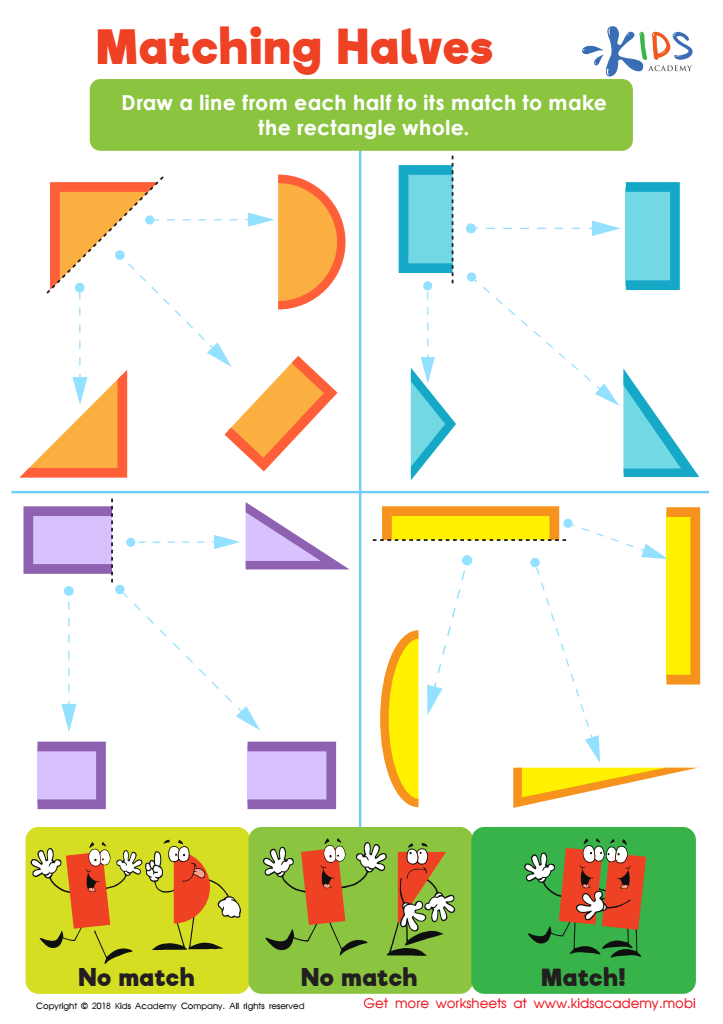

Matching Halves Worksheet
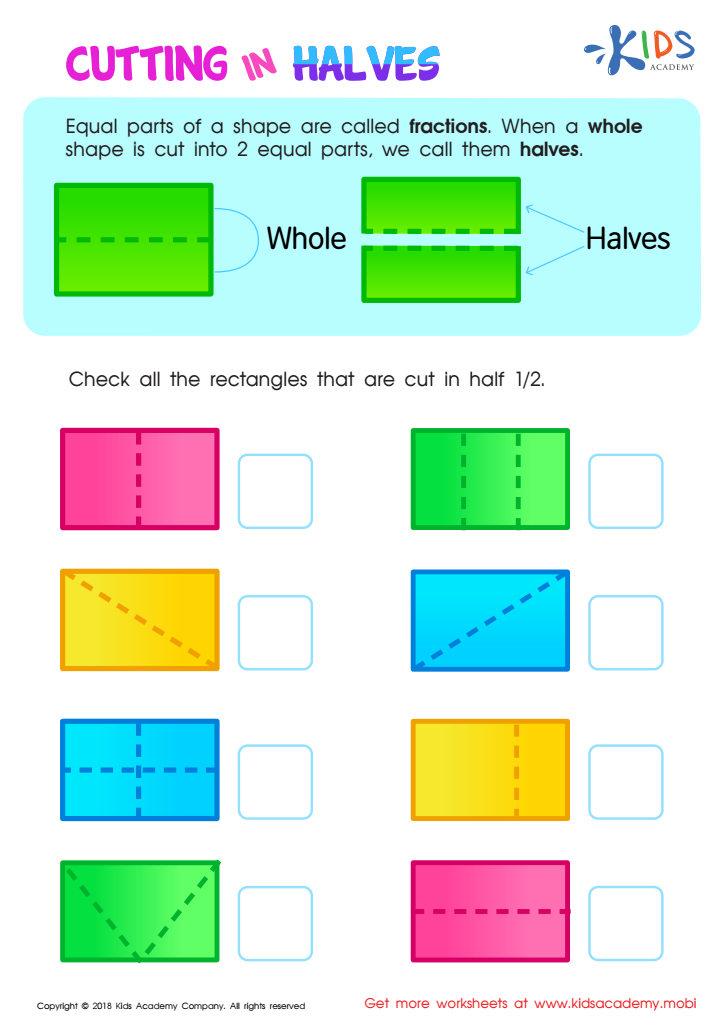

Cutting in Halves Worksheet
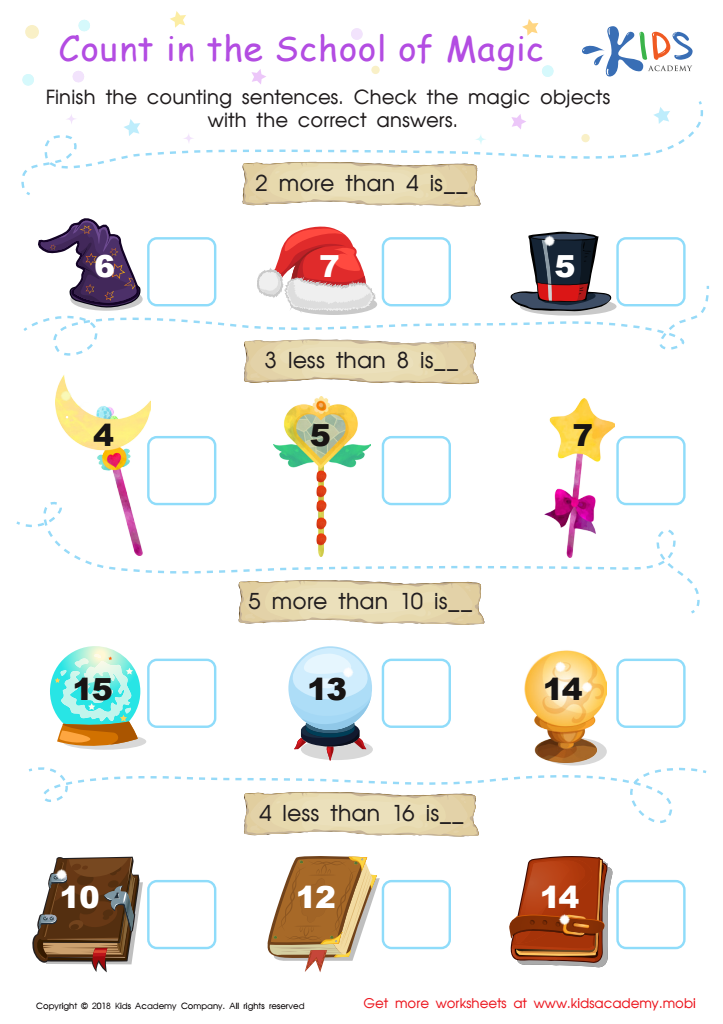

Count in the School of Magic Worksheet
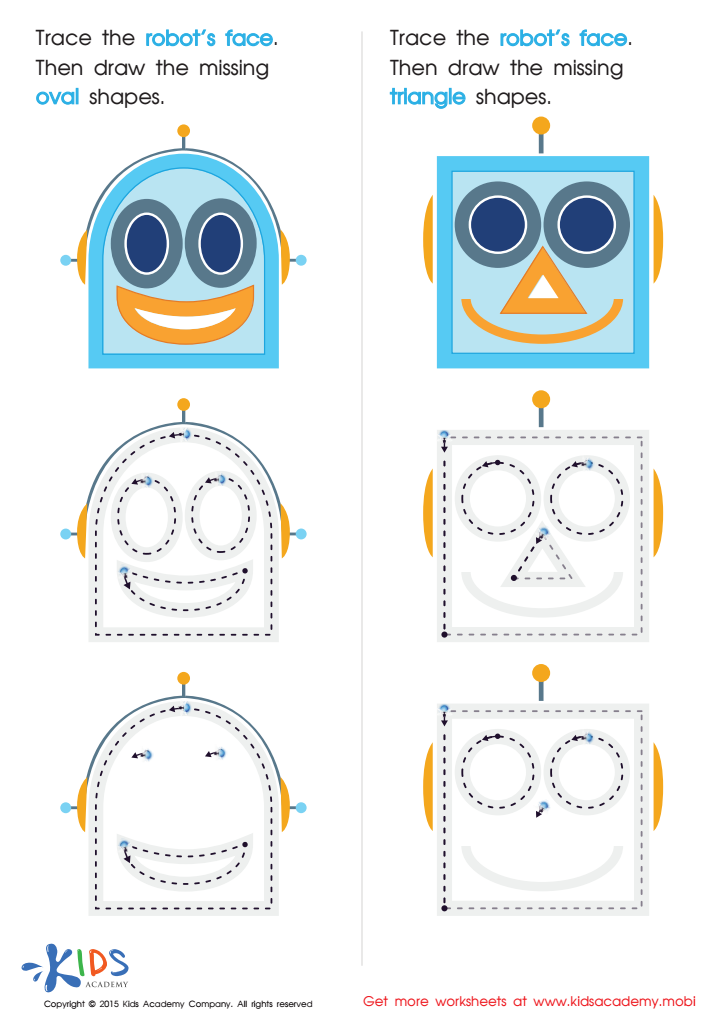

Drawing Ovals And Triangles with Fun Printable
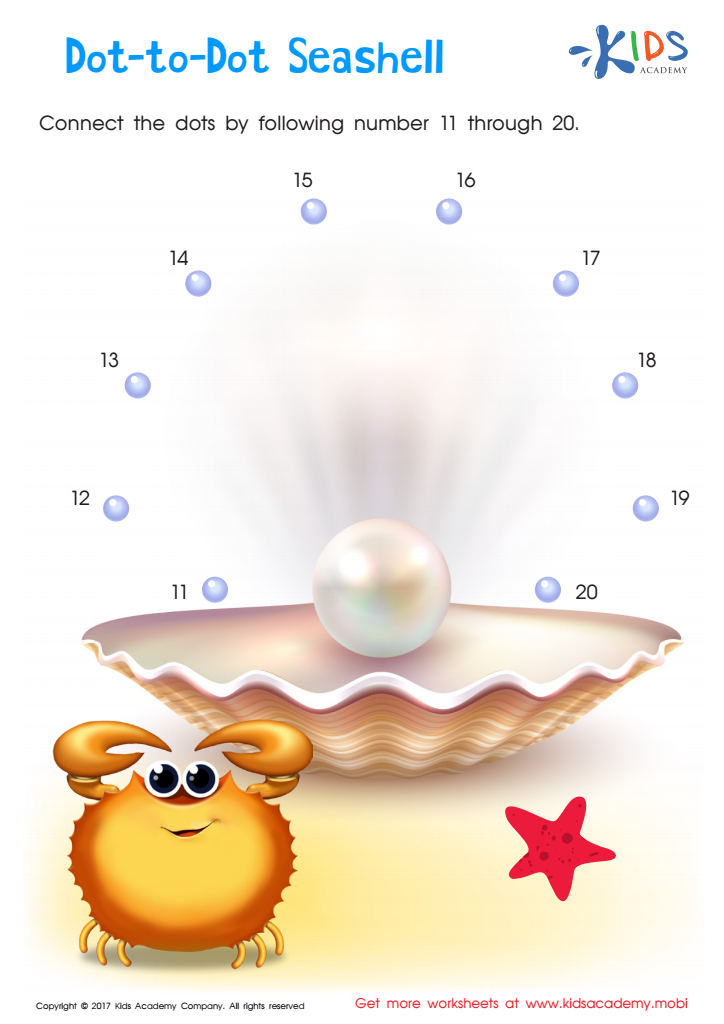

Ordering 11–20: Dot–to–dot Seashell Printable
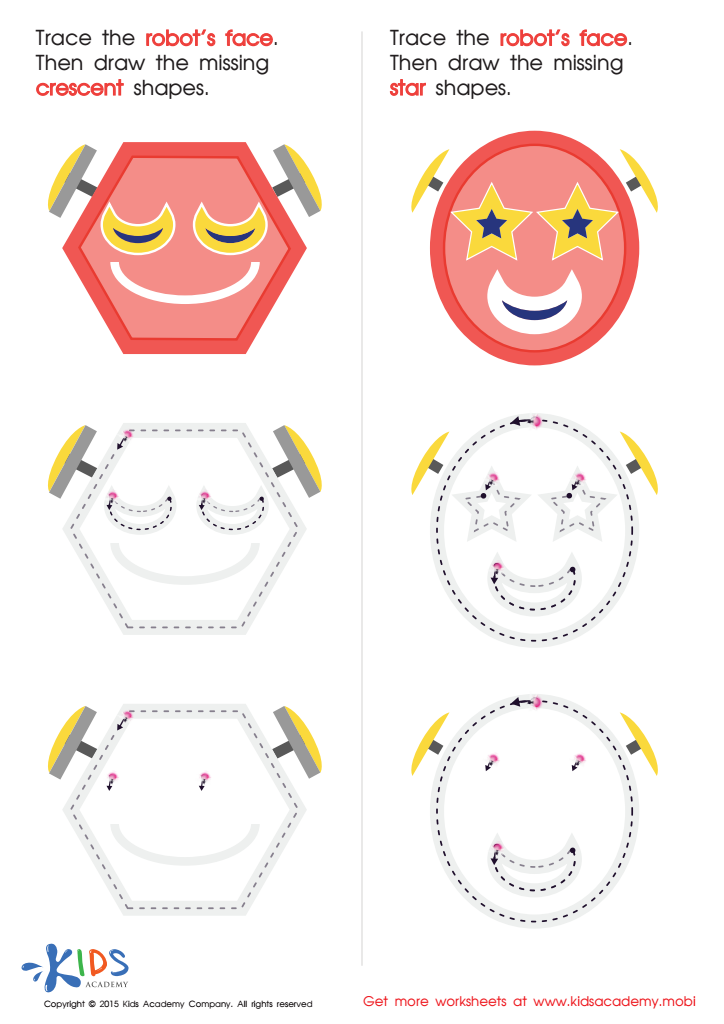

Composing a Robot's Face of Crescents And Stars Worksheet
Shape recognition is a fundamental aspect of early childhood education, especially for children ages 4-7. This developmental stage involves rapid learning and cognitive growth, making it an ideal time to introduce concepts that build a solid mathematical foundation. Understanding and recognizing shapes is one of these vital concepts.
For parents and teachers, incorporating shape recognition into a child’s education helps enhance visual perception skills, critical in everyday tasks and more advanced educational activities. When children learn to identify and differentiate between shapes, they develop problem-solving skills and spatial awareness. These foundational skills are crucial not just in mathematics but also in fields like engineering, art, and early literacy.
Shape recognition also serves as a prelude to geometry. By learning to name and analyze shapes, children begin to understand relationships and properties, such as symmetry, which are essential for higher-level math. Engaging in activities like sorting objects, drawing shapes, or playing shape-based games can make learning fun and interactive.
Additionally, discussing shapes and their properties can enhance language development. Using terms like "edges," "angles," and "sides" enriches a child's vocabulary. Thus, integrating shape recognition into early learning provides educational benefits that extend beyond mathematics, fostering well-rounded development.
Ensuring children grasp shape recognition early on equips them with critical analytical skills and sets a positive trajectory for future academic success.
 Assign to My Students
Assign to My Students




.jpg)












